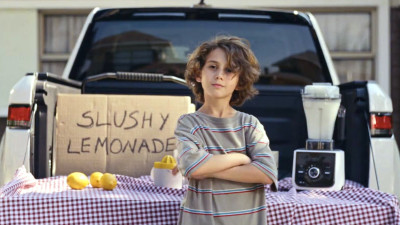WARC’s ‘Effective 100’ show that sustainability-led messaging can pay dividends. These campaigns don’t just build brand equity — they build brands that matter.
In 10-Year Study of Most Effective Brand Campaigns, Sustainability Is a Win
In a volatile market, it can be a good idea to remind ourselves (and our colleagues) that there’s a strong business case for ESG and sustainability.
Last week, The Guardian launched the "89 Percent Project" in collaboration with other media outlets to spotlight a global consensus: Between 80 and 89 percent of people worldwide support stronger governmental action on climate change.
Despite this overwhelming majority, many individuals mistakenly believe they are in the minority — a phenomenon termed the "spiral of silence." Maybe this is also a trend in marketing? Are we underestimating consumers’ willingness to engage on ESG?
Back in 2012, when I was an up-and-coming sustainability enthusiast releasing my first book, Goodvertising, I coined a simple belief: “What’s good for people and planet is good for brand and bottom line.” At the time, I saw a growing trend of brands weaving social and environmental narratives into their campaigns. It felt like the beginning of something.
Now, working with global marketing intelligence company WARC, I’ve had the chance to test that theory with real data — analyzing 100 of the world’s most effective campaigns from 2014 to 2024 through a sustainability lens.
The recent WARC report, Sustainability in the WARC Effective 100, underscores a pivotal shift in the branding landscape — the rise of sustainability and social responsibility as core components of effective marketing strategies.
The evolution of brand effectiveness
Over the past decade, the most impactful campaigns have transcended mere product promotion. They've delved into societal issues, aligning brand values with those of their consumers. This alignment isn't just ethical; it's strategic. Brands that authentically engage with social and environmental causes resonate more deeply with audiences, fostering loyalty and trust.
The findings surpassed my expectations. On average, 30 percent of the most effective campaigns included a social or environmental angle — ranging from 19 in 2015 to a peak of 39 in 2021. But what surprised me even more was the consistency. Sustainability didn’t show up as a trend peaking and fading — it has remained a steady force across the decade.
Key strategies for building meaningful brands
-
Rewarding positive behavior: Incentivizing consumers to make sustainable choices can drive both brand engagement and positive impacts. For instance, Tesco Malaysia offered discounts to customers who reused plastic bags — promoting more sustainable habits while enhancing brand image.
-
Empowering communities: Financial-services brands including American Express, Mastercard and Visa have supported small business owners around the world; while Knorr has aided impoverished communities in cultivating their own food. Such initiatives not only address societal challenges but also position brands as catalysts for positive change.
-
Reframing challenges: French supermarket Intermarché led the fight against retail food waste by marketing imperfect produce, turning a perceived flaw into a unique selling proposition. This approach demonstrates innovative thinking and a commitment to sustainability.
-
Personalizing social issues: Campaigns that address personal and societal concerns — such as Dove's focus on women's self-esteem or SK-II's spotlight on societal pressures faced by young women in China — forge emotional connections with consumers.
-
Pioneering new categories: Back Market's emergence as a leading seller of refurbished personal electronics illustrates how brands can create new markets that align with environmental values.
Other topline findings from WARC’s ranking of the world’s most effective campaigns:
-
Social sustainability issues including women’s empowerment, challenging biases and tackling poverty emerge as key themes.
-
Environmental sustainability campaigns are less prominent across the 10-year analysis, although reducing waste is a key theme.
-
Effective brands have a core issue and support it over time; they don’t just highlight the issue — they also reinforce the customer benefit, and many use creativity to find novel solutions.
-
Toiletries and cosmetics (54) and retail (43) are the categories with the highest volume of sustainability campaigns.
-
The region with the most sustainability-focused creative was North America (73), with Asia (64) and Europe (63) not far behind.
Implications for marketers
The insights from the WARC report suggest that brands must evolve to remain relevant. This evolution involves integrating purpose-driven initiatives into core business strategies, ensuring authenticity in messaging, and measuring success through a multifaceted lens.
Forget jargon such as “environmental,” “social” and “ESG” — effective campaigns are really about kitchen-table issues: cost of living, health, education, jobs, housing, family. These aren’t passing fads; these are perennial human concerns — the kind that won’t go out of style like the latest colorway on your Nikes.
If we want to be better marketers, we need to be better humans. Campaigns from effective brands across a variety of industries have shown that sustainability-led messaging can deliver lasting impact. When sustained over time, these campaigns don’t just build brand equity — they build brands that matter.








